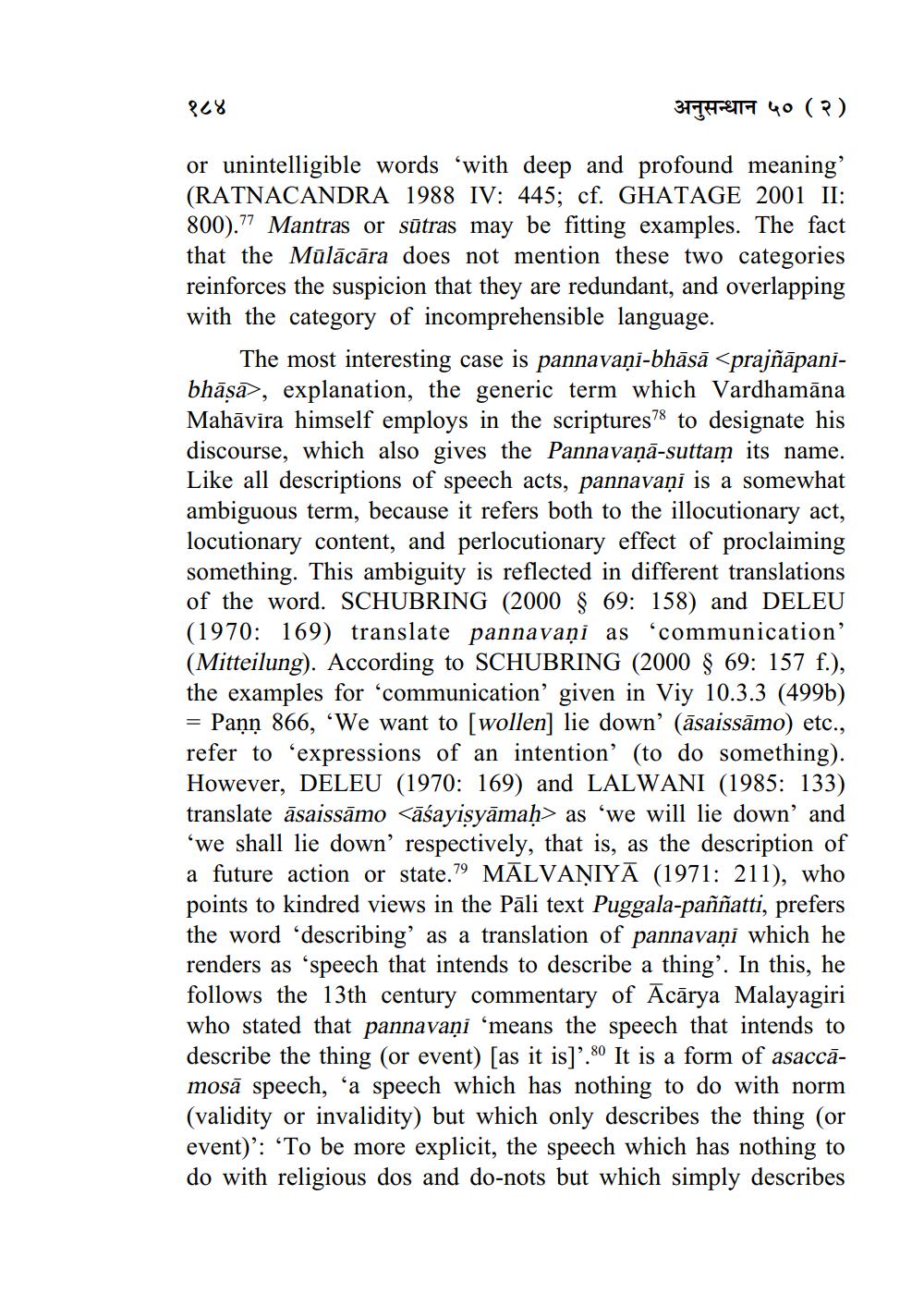________________
१८४
अनुसन्धान ५० (२)
or unintelligible words 'with deep and profound meaning' (RATNACANDRA 1988 IV: 445; cf. GHATAGE 2001 II: 800)." Mantras or sūtras may be fitting examples. The fact that the Mulācāra does not mention these two categories reinforces the suspicion that they are redundant, and overlapping with the category of incomprehensible language.
The most interesting case is pannavaṇī-bhāsā <prajñāpanibhāṣa, explanation, the generic term which Vardhamana Mahavira himself employs in the scriptures78 to designate his discourse, which also gives the Pannavaṇā-suttam its name. Like all descriptions of speech acts, pannavani is a somewhat ambiguous term, because it refers both to the illocutionary act, locutionary content, and perlocutionary effect of proclaiming something. This ambiguity is reflected in different translations of the word. SCHUBRING (2000 § 69: 158) and DELEU (1970: 169) translate pannavaṇi as 'communication' (Mitteilung). According to SCHUBRING (2000 § 69: 157 f.), the examples for 'communication' given in Viy 10.3.3 (499b)
Pann 866, 'We want to [wollen] lie down' (āsaissāmo) etc., refer to 'expressions of an intention' (to do something). However, DELEU (1970: 169) and LALWANI (1985: 133) translate āsaissāmo <āśayisyāmaḥ> as 'we will lie down' and 'we shall lie down' respectively, that is, as the description of a future action or state.79 MALVAṆIYĀ (1971: 211), who points to kindred views in the Pāli text Puggala-paññatti, prefers the word 'describing' as a translation of pannavani which he renders as 'speech that intends to describe a thing'. In this, he follows the 13th century commentary of Acārya Malayagiri who stated that pannavaṇi ‘means the speech that intends to describe the thing (or event) [as it is]'.80 It is a form of asaccamosā speech, 'a speech which has nothing to do with norm (validity or invalidity) but which only describes the thing (or event)': 'To be more explicit, the speech which has nothing to do with religious dos and do-nots but which simply describes




